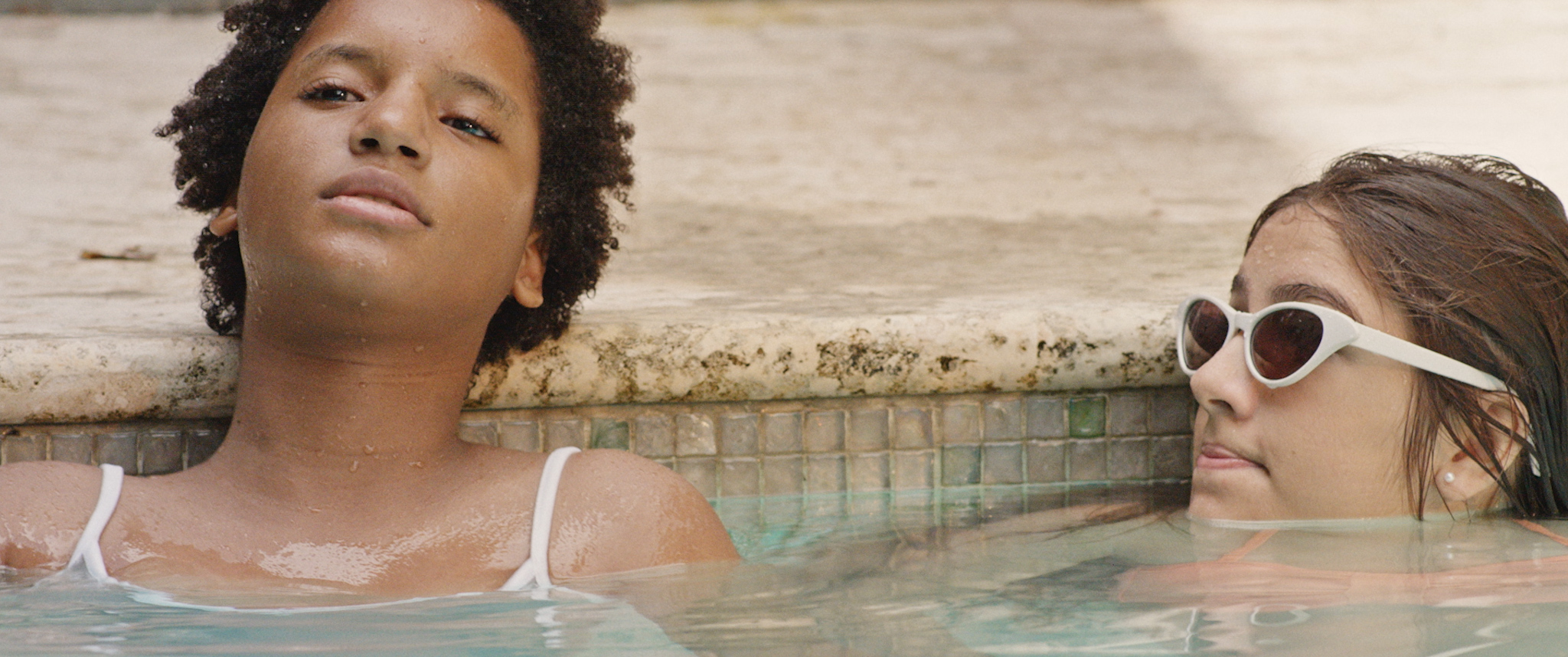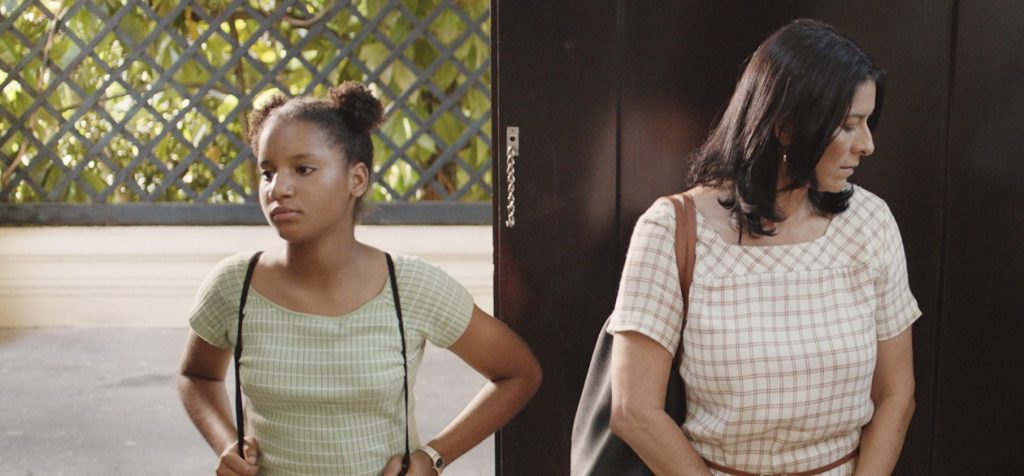Movies confronting racism can often feel preachy or, worse yet, tone-deaf. Natalia Cabral and Oriol Estrada‘s Miriam miente (Miriam Lies) avoids this pitfall by focusing on a seemingly small-scale, everyday affair. In doing so, the film highlights the racist micro-aggressions that underpin the larger and more insidious ways that many in the Dominican Republic – and all over Latin America – perpetuate a race-based hierarchy.
The story centers on a young black girl named Miriam (Dulce Rodríguez). Miriam’s mother (Pachy Méndez) makes her feel ashamed of her dark skin and so-called unruly hair – perhaps because she still harbors regret over marrying Miriam’s dark-skinned father (Vicente Santos). The ensuing divorce means Miriam is growing up among her light-skinned side of the family, where plenty of subtle and not-so-subtle pejorative words are flung at anyone darker than them, be they dancing on TV or being part of “the help.” This is the background context that drives Miriam to tell the lie referenced in film’s title. While she’s quite shy around her friends, Miriam has found herself an online boyfriend, and she’s excited to introduce him to everyone at her quinceañera. Only, when she goes to meet him in person for the first time, she realizes that’s impossible: he’s black. She never introduces herself and is left to invent lies to her mother about who that ‘Jean-Louis’ boy who has yet to make an appearance.
The plot is unnecessarily slight, almost better suited for a tight short film than the full length feature here presented. For much of its hour and a half running time, Miriam miente ambles between scenes where Miriam is conflicted about disappearing from Jean Louis’ life and others where she sees precisely why she can’t fathom inviting him to her party to be the dancing partner she’d hoped for.
Her uncle and family go on and on about how beautiful girls are blond and have blue eyes (and, in turn, that all that matters is one’s appearance). Her mother throws a fit when a young black boy is asked to stand-in for Jean-Louis during dance rehearsals, later all but admitting her own dad didn’t want her to marry Miriam’s father. Throughout, Rodríguez is left to do little else but pout and stare blankly at the adults around her. Miriam’s interiority remains an inscrutable unknown, though canny audiences who have been in her shoes will be able to fill in much of the shame and self-doubt that colors her decisions.

The micro-aggressions described above are presented bluntly, as if the directing duo were eager to lay bare the ugly way upper middle-class Dominicans regard their dark-skinned brethren. Méndez, in particular, nails her character’s insecurities about her class. The extravagant quinceañera is shown to be a way to keep up with wealthier neighbors and has little to do with Miriam herself. She doesn’t even catch the pain she’s inflicting on her daughter when she tells her she’s happy they’ve “fixed” (i.e. ironed) her hair. But there’s also something rather listless about Cabral and Estrada’s filmmaking; it never finds its own rhythm, and remains truncated in its own repetitive loops. There’s some eye-catching framing when Miriam visits the blue-hued natural museum where she enjoys the chance to be still and quiet, as well as a touching purple-hued quinces dance that telegraphs Miriam’s discomfort at what she’s done to herself and Jean-Louis in turn. But overall, we’re stuck in a washed out color palette that only intermittently comes to life (not coincidentally when Miriam’s father and his penchant for dancing is involved).
Nevertheless, Miriam miente deserves to be seen. Not just because the complicated racial dynamics at work in the lives of mixed-race kids are so seldom explored, but because Cabral and Estrada aren’t interested in tidily resolving the many plot threads they tease throughout. In the film, as in life, Miriam will have no singular moment of revelation nor single chance to rectify the culture which makes her feel so ill at ease in her own skin.
Miriam miente screened as part of the Panama International Film Festival.







